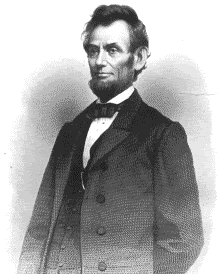 America’s center of political gravity is defined by the Republican Party’s intellectual and moral disintegration. Senator Arlen Specter’s recent defection is an example of the American people rejecting the Republican Party like a body discarding a toxic kidney.
America’s center of political gravity is defined by the Republican Party’s intellectual and moral disintegration. Senator Arlen Specter’s recent defection is an example of the American people rejecting the Republican Party like a body discarding a toxic kidney.Partisan Democrats are understandably enjoying the GOP’s self-destruction as President Obama and his congressional majority implements an ambitious agenda. As a liberal Democrat and devoted activist, I appreciate the sentiment. While in power Republicans not only demonstrated contempt for the rule of law but even waged war against the unique American ideal of a meritocracy. Hence, one of my early posts as a blogger was entitled “Brezhnev Republicans” in January 2006. Republicans have earned the contempt and derision of patriotic citizens for their insipid indecency.
Yet I am neither gleeful nor triumphal about the Republican Party’s self-destruction because America’s winner-take all political system favors two dominant parties. Independents and third party candidates may sometimes break through or influence the outcome of elections. We’ve seen examples of this with the Libertarian and Green parties in recent years. Nonetheless, a two party duopoly will likely maintain its stranglehold on America’s body politic.
As I do not regard the Democratic Party as a panacea my preference is for both parties to be healthy, mature, honorable and intelligent. I say that even as I am devoted to working (and agitating) within the Democratic Party to facilitate peace and economic and social justice. The ideals I espouse can’t be achieved without a credible and decent minded opposition party. Vigorous competition in the marketplace of ideas is an essential component of any healthy democracy.
There is an opening to be seized in the idea marketplace either by the Republican Party or another party able to fill the void as an organized opposition. That void is to provide a counterweight to the pervasive influence of Wall Street and the financial services sector. Just as there was more to this country than George W. Bush, Donald Rumsfeld and Dick Cheney there is also more to America than plutocrats such as Timothy Geithner and Larry Summers.
President Obama has spoken eloquently about the need to promote sectors of the economy other than banking and financial services. He reiterated that theme again in his recent interview with economist David Leonhardt:
“We don’t want every single college grad with mathematical aptitude to become a derivative trader. We want some of them to go into engineering, we want some of them going into computer design.”Yet the policies designed by his chief economic advisers Timothy Geithner and Larry Summers are excessively Wall Street centric. Americans across the political spectrum are hungering for an economic vision that transcends hyper-sized banks and multinational corporations at the expense of local communities, entrepreneurial small business owners and hard working wage earners.
Big government is needed to facilitate universal health care, ensure compliance with new environmental regulations that reduce carbon emissions and help workers retool during this period of economic calamity. Government however should not be empowering big banks and multinational corporations. My visceral sense is a majority consensus has emerged that while we need an activist government we should not be subsidizing big corporations.
Obama’s rhetoric notwithstanding, his administration continues to promote the Wall Street economy that contributes nothing tangible to our society. I support much of President Obama’s domestic agenda with respect to health care, the environment, education and infrastructure. But I would welcome a viable opposition party that provides a counterweight to the Geithner/Summers vision of reforming the Wall Street economy the way Gorbachev tried to reform communism.
The Republican Party has neither the intellectual firepower nor temperament to provide that counterweight. Indeed, it was the Republican conservative ideology of deregulation at the behest of Wall Street that created the mess we’re in today. Hopefully, a new political class of technocratic populists can emerge that replaces the Republican Party and raises the bar of governing performance for Democrats.
Two centuries ago, farsighted leaders such as Abraham Lincoln abandoned the Whig Party when it imploded over the issue of slavery. The Whigs had a proud tradition that included leaders such as Speaker Henry Clay. But when it was no longer able to meet the challenges of its era, Lincoln’s Republican Party replaced it.
Similarly, the Republican Party had its day and boasted high caliber leaders such as President Dwight Eisenhower. It was also Republican Senate leader Ervin Dickerson that enabled President Lyndon Johnson to pass civil rights in the 1960s. Although I strongly disagreed with his zealous promotion of supply side economics, I admired Republican Jack Kemp who sincerely worked to make his party and America more inclusive. Kemp, who just died of cancer at 73, had his heart in the right place. Tragically, he was one of the few Republicans who did.
As of now, the big elephant is deranged and not capable of providing the credible opposition our democracy needs and deserves. It would not shock me if Democrats screwed up sufficiently to eventually merit being out of power. America would be better served if an opposition party of decent and intelligent people existed as an alternative. Presently, we don’t have one.
History however abhors a vacuum. If a coherent leadership class doesn’t emerge in the Republican Party soon, that vacuum will be filled by something else. Who knows, perhaps the Whigs will make a comeback.
